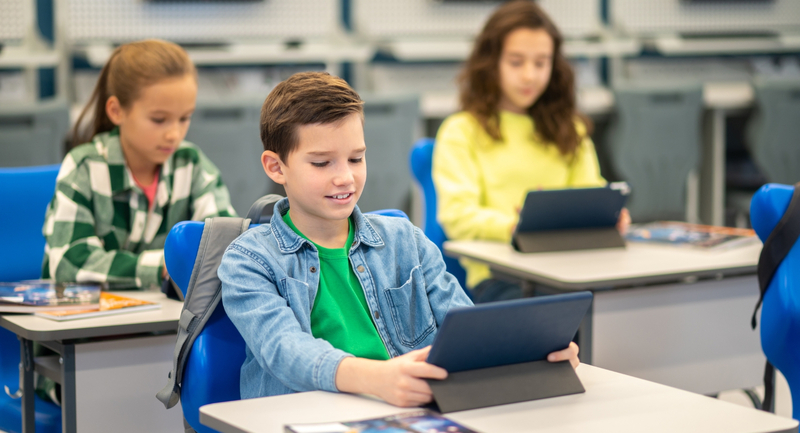If self-direction is the fuel that allows students to choose their own path through a lesson or unit, goal setting is the roadmap that keeps them on track. Whether students are devising long-term objectives or goalposts to reach by the end of the day, their being conscious of their progress and motivated toward new achievements is critical to learning. That’s according to literacy experts and school administrators, Douglas Fisher and Nancy Frey.
As the columnists point out in the November issue of Educational Leadership, having conversations with students about their personal goals—particularly those that focus on mastery of skills and concepts as opposed to grades on tests or classes—can build their sense of self-efficacy. And breaking down long-term goals into incremental aims can help students self-regulate and control impulsive behaviors.
In the video portion of their column, Fisher and Frey highlight a goal-oriented conversation between interventional paraprofessional Cynthia Ramirez and Cesar, a multilingual student receiving intervention supports. Ramirez lets Cesar make the decisions about how he wants to continue working on his reading and literacy goals. Perhaps Cesar has lofty aspirations for the distant future, but both he and Ramirez know that making progress requires taking gradual steps. As Fisher and Frey write, “When we set goals for ourselves, we typically don't start with the most ambitious outcomes we can think of."
This conversation is one of many Ramirez and Cesar will have over the course of the school year, but it offers a glimpse into how educators can work with students to create goals that are specific, challenging, and focused on individual growth. Cesar may still have more goals to achieve this year, but thanks to these check-ins, he’s on the right track.
 Student Engagement
Student EngagementShow & Tell / The Power of Goals
3 years ago





